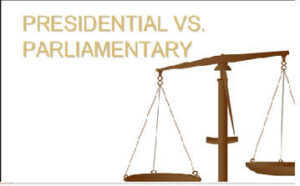Living in a country where you have to speak a foreign language can indeed bring about both social and practical challenges. First, one may face communication barriers. The inability to speak the local language can lead to communication difficulties in daily interactions, making it hard to convey needs, build relationships, and fully engage with the local community.
Second, living in a foreign country without an understanding of native language can cause social isolation. Language is a key factor in forming social connections. If you can’t communicate effectively, you might find it difficult to make friends, participate in community events, or feel a sense of belonging. Third, you cannot avail employment opportunities in that country even if you’re alien to the foreign language.
Else, job opportunities might be limited if you cannot communicate proficiently in the local language. This could lead to underemployment or unemployment. Moreover, navigating services such as healthcare, government offices, and legal matters can be challenging if you don’t understand the language, potentially impacting your well-being and rights.
In contrast to that, in many countries, there are resources available to help non-native speakers access services and information, such as translators, mobile applications, language courses, and multilingual service providers. Besides, many countries have diverse populations and are used to interacting with people who speak different languages. In such environments, locals might be more patient and accommodating toward non-native speakers.
Over time, individuals can learn the local language, particularly if they’re immersed in the environment. Many people successfully adapt and become proficient in the language, reducing the challenges they face. More so in today’s interconnected world, English is often used as a lingua franca in business, tourism, and academia. This might mitigate practical challenges, especially in urban areas.
In conclusion, the impact of living in a country where you have to speak a foreign language can vary widely. While there can be challenges related to social integration and practical matters, many factors, such as available resources, personal effort to learn the language, and the local environment, play a role in determining the extent of these challenges.
📍 English Language Educator | Blogger & Content Strategist | 7+ Years in Educational Blogging
Nosheen Bashir is a dedicated English teacher and experienced blogger with over seven years of expertise in content creation and educational writing. Passionate about language, literature, and effective communication, she combines her teaching experience with blogging skills to create insightful, research-backed content that helps learners and educators alike.
🔹 Expertise & Achievements:
✔ English Language Education: A skilled educator with years of experience in teaching English grammar, literature, and communication skills to students of varying levels.
✔ Educational Blogging: Running a successful blog for 7+ years, delivering well-structured, engaging content on language learning, writing techniques, and academic success.
✔ SEO & Content Strategy: Specializes in creating high-ranking, authoritative articles that follow Google’s EEAT principles, ensuring content that is both informative and search-friendly.
✔ Student-Centric Approach: Committed to making English easier, engaging, and accessible, helping readers and students improve their language proficiency.
🚀 With a passion for teaching and writing, Nosheen Bashir is dedicated to crafting educational content that empowers students, teachers, and language enthusiasts worldwide.










